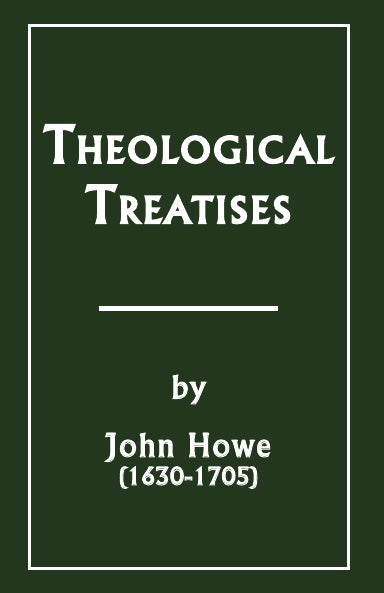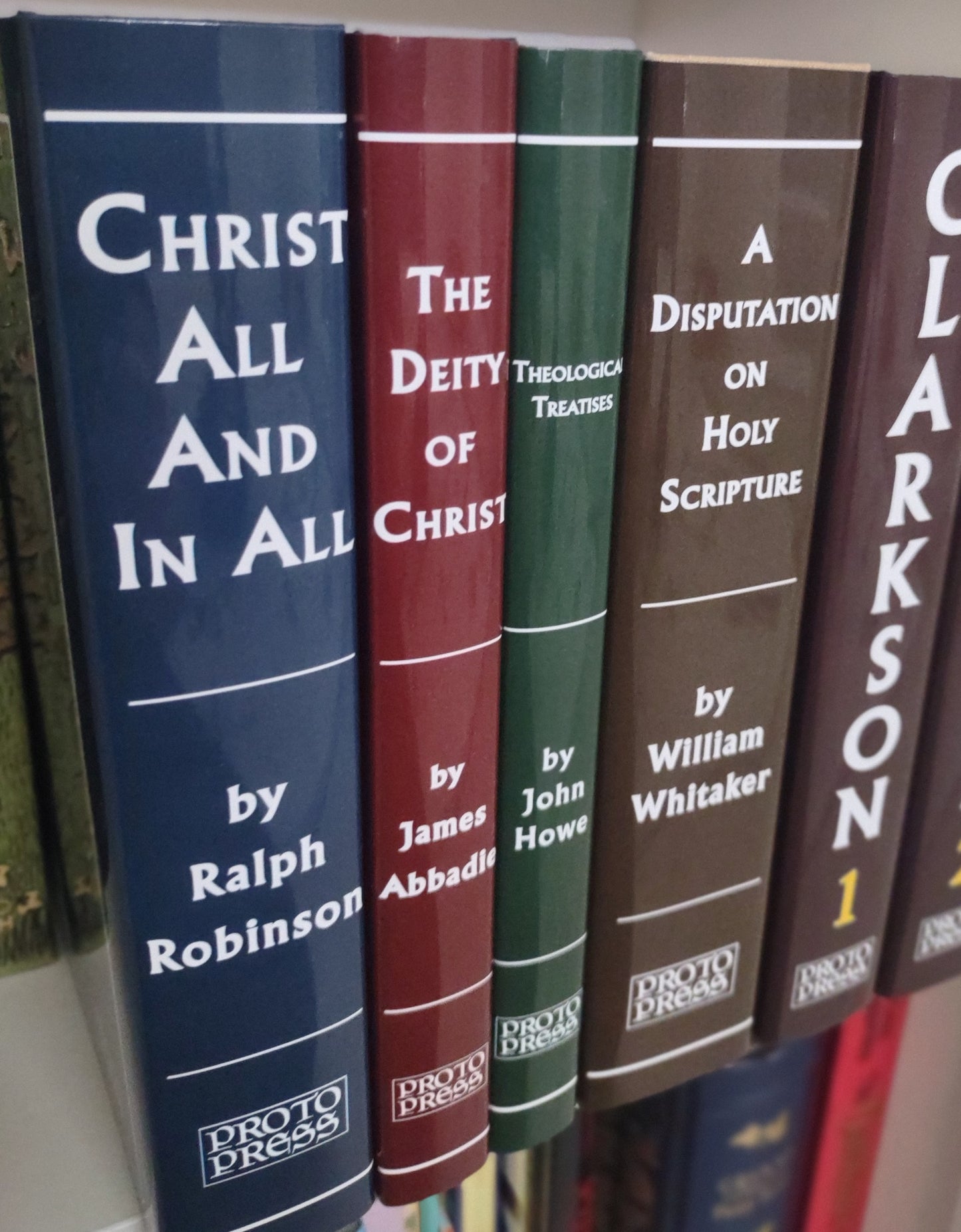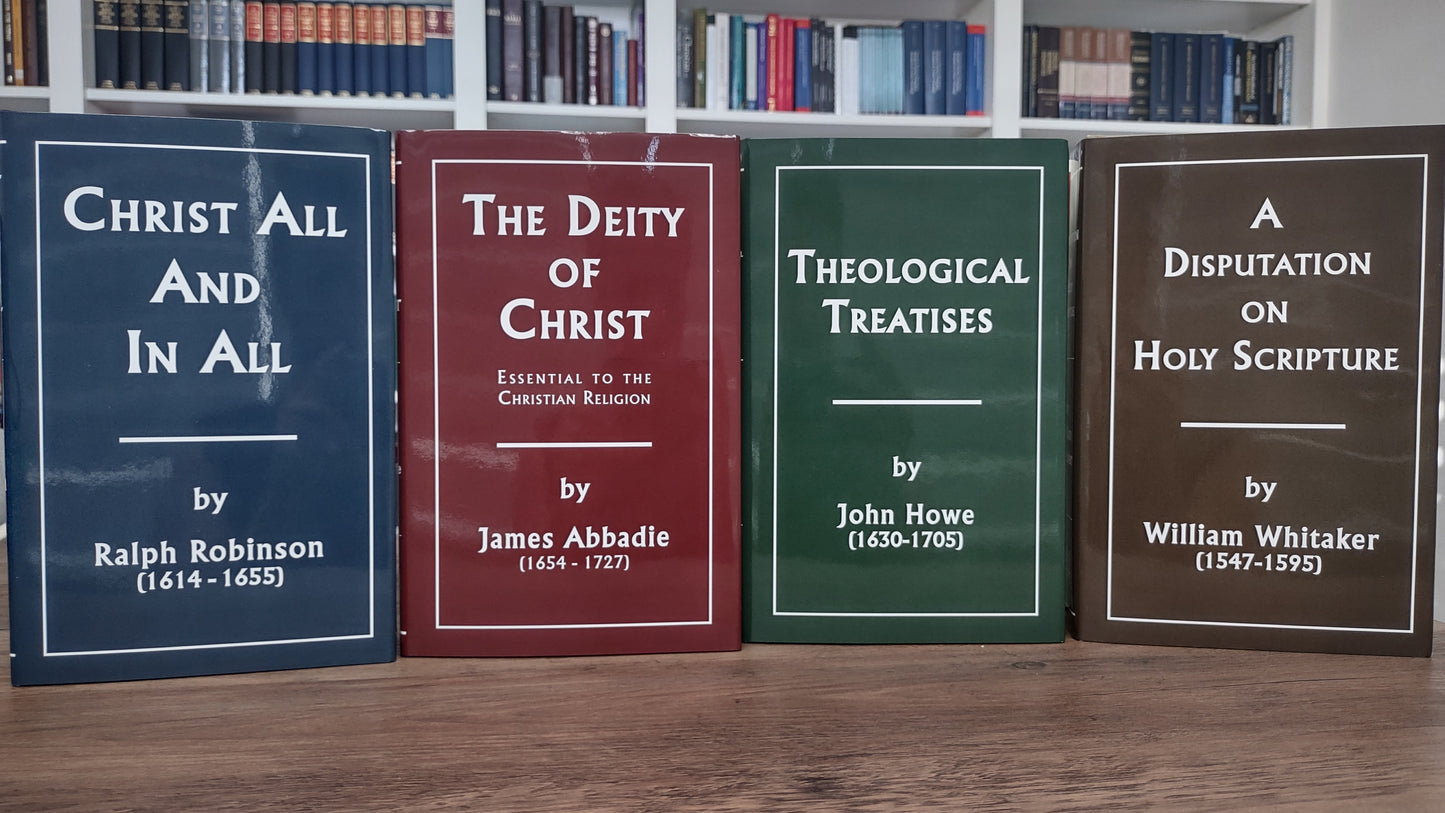Proto Press Books
Theological Treatises by John Howe
Theological Treatises by John Howe
Couldn't load pickup availability
Contains three treatises from Howe:
- God's Prescience of the Sins of Men
- The Vanity of this Mortal Life
- The Redeemer's Dominion Over the Invisible World
John Howe (1630-1705) was an English Puritan theologian. He served briefly as chaplain to Oliver Cromwell.
Howe was born at Loughborough. At the age of five he went to Ireland with his father, who had been ejected from his living by William Laud, but returned to England in 1641 and settled with his father in Lancaster. He studied at Christ’s College, Cambridge, and at Magdalen College, Oxford (B.A., 1650; M.A., 1652), where for a time he was fellow and college chaplain. At Cambridge he came under the influence of Ralph Cudworth and Henry More, from whom he probably received the Platonic tinge that marks his writings. About 1654 he was appointed to the perpetual curacy of Great Torrington, Devon. In this place, according to his own statement, he was engaged in the pulpit on fast-days from nine to four, with a recess of fifteen minutes, during which the people sang. While on a visit to London in 1656 Oliver Cromwell prevailed upon him to preach at Whitehall, with the result that Howe, much against his preferences, became one of Cromwell’s chaplains. Upon Richard Cromwell’s retirement he returned to his former parish at Torrington. When the Act of Uniformity 1662 was passed he quit his church, but remained for some time in the neighbourhood, preaching in private houses. In this period he was cited before the Bishop of Exeter, his old friend Seth Ward, who vainly urged Howe to be reordained.
In 1671 he became chaplain to Lord Massereene, of Antrim Castle, Ireland. Here he was a member of the Antrim Meeting, the precursor of the Presbyterian organization in Ireland. In 1676 he returned to London as the successor of Lazarus Seaman at Haberdashers’ Hall. In 1685, on account of the greater severity shown to the dissenters, he accepted an invitation to accompany Lord Wharton to the Continent, and the year following settled at Utrecht. When James II issued his declaration for liberty of conscience in 1687 Howe returned to his old position in London. From this time till his death he took an active interest in current discussions on predestination, the Trinity, and conformity. In 1688 he headed a deputation of dissenting ministers in an address of welcome to William of Orange. He died in London.
Shipping & Returns
Shipping & Returns
We offer a 14-day return policy on all book orders unless otherwise noted in the product description
Dimensions
Dimensions






